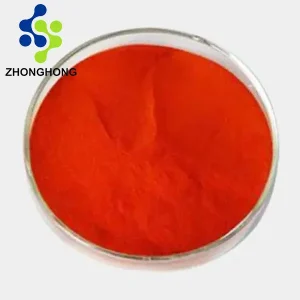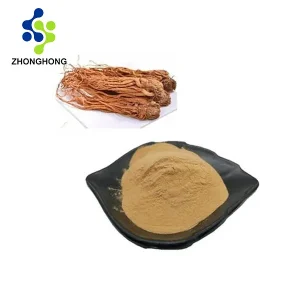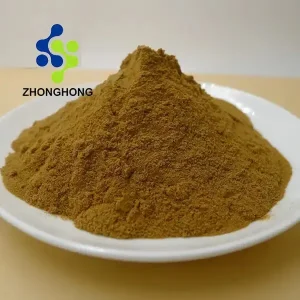Gastrodia Phenolic Compounds: The Neuroprotective Powerhouse from Tian Ma
1. What Are Gastrodia Phenolic Compounds?
Gastrodia phenolic compounds are a bunch of bioactive phytochemicals primarily derived from Gastrodia elata Blume (天麻/Tian Ma), a revered medicinal orchid in Conventional Chinese language Medication (TCM). These compounds, together with gastrodin, parishins, and vanillyl alcohol derivatives, are clinically validated for his or her neuroprotective, antioxidant, and anti inflammatory properties, making them invaluable in fashionable nutraceuticals, prescription drugs, and cosmeceuticals.
2. Supply, Chemical Properties & Key Identifiers
Major Supply
-
Botanical Origin: Gastrodia elata Blume (Orchidaceae household)
-
Plant Half Used: Dried rhizomes (underground stems)
-
Geographical Distribution: Yunnan, Guizhou, and Sichuan provinces (China) yield the highest-quality specimens
Key Chemical Constituents
| Compound | Chemical Class | Relative Abundance |
|---|---|---|
| Gastrodin | Phenolic glycoside | 40-60% of complete phenolics |
| Parishin A/B/C | Gastrodin oligomers | 15-25% |
| Vanillyl alcohol | Easy phenol | 5-10% |
| 4-Hydroxybenzyl alcohol | Benzyl spinoff | 3-8% |
Physicochemical Properties
-
Appearance: White to mild yellow crystalline powder (gastrodin), brown viscous extract (complete phenolics)
-
Solubility: Water-soluble (gastrodin), ethanol-soluble (parishins)
-
Stability: Delicate to UV mild and oxidation; requires antioxidant safety
Regulatory Identifiers
| Parameter | Gastrodin | Whole Phenolics |
|---|---|---|
| CAS Quantity | 62499-27-8 | Not assigned (combination) |
| Molecular Method | C₁₃H₁₈O₇ | Variable |
| Molecular Weight | 286.28 g/mol | 200-1000 Da |
| EINECS | 263-618-1 | N/A |
3. Premium High quality, Well being Benefits & Security
Greatest Sources & Efficiency
-
Highest-Yielding Strains: Wild G. elata from Yunnan incorporates 2-3% gastrodin by dry weight
-
Optimized Extracts: Superior CO₂ supercritical extraction yields ≥98% pure gastrodin
-
Gold Normal: HPLC-validated extracts with ≥50% complete phenolic content material
Proof-Primarily based Well being Benefits
-
Neuroprotection
-
Crosses the blood-brain barrier to cut back glutamate excitotoxicity
-
Upregulates BDNF and NGF for neuronal regeneration
-
Medical enchancment in Alzheimer’s (500mg/day) and vertigo (300mg/day)
-
-
Cerebrovascular Safety
-
Inhibits NF-κB pathway, lowering post-stroke irritation
-
Improves microcirculation in vascular dementia sufferers
-
-
Antioxidant Results
-
Scavenges OH· and O₂·⁻ radicals (ORAC worth ≥15,000 μmol TE/g)
-
-
Analgesic Properties
-
Modulates TRPV1 receptors for migraine reduction
-
Dosage Pointers
| Application | Day by day Dose | Period |
|---|---|---|
| Cognitive assist | 200-400 mg | 8-12 weeks |
| Acute circumstances | 500-800 mg | 4-6 weeks |
| Preventive care | 100-200 mg | Lengthy-term |
Security Profile
-
GRAS Standing: Typically Acknowledged as Protected at really helpful doses
-
Drug Interactions: Could potentiate GABAergic medication (benzodiazepines)
-
Contraindications: Being pregnant (inadequate security knowledge)
4. Manufacturer Profile: Shaanxi Zhonghong Investment Technology Co., Ltd.
Core Competencies
-
28 Years of specialised extraction experience
-
cGMP & ISO 13485 licensed amenities
-
Proprietary Applied sciences:
-
Molecularly imprinted polymers for gastrodin purification
-
Cryogenic grinding for phenolic preservation
-
High quality Infrastructure
-
Analytical Capabilities:
-
UPLC-QTOF-MS for compound fingerprinting
-
600MHz NMR for structural affirmation
-
-
Purity Requirements: Exceed pharmacopeial necessities by 20-30%
5. Product Specs (Pharmaceutical Grade)
High quality Management Parameters
| Class | Parameter | Specification | Take a look at Methodology |
|---|---|---|---|
| Id | Gastrodin HPLC match | ≥98% similarity | USP <621> |
| Purity | Whole phenolics | ≥50% w/w | UV-Vis (280nm) |
| Heavy Metals | Lead (Pb) | ≤0.5 ppm | ICP-MS |
| Cadmium (Cd) | ≤0.1 ppm | ICP-MS | |
| Microbiology | Whole cardio rely | ≤1000 CFU/g | USP <61> |
| C. albicans | Absent | USP <62> |
6. Superior Manufacturing Workflow
-
Sourcing: Wild-harvested G. elata (3-year-old rhizomes)
-
Pre-treatment: Lyophilization at -40°C to protect phenolics
-
Extraction:
-
Major: Subcritical water extraction (120°C, 15MPa)
-
Secondary: Macroporous resin adsorption (AB-8 resin)
-
-
Purification:
-
Preparative HPLC (C18 column) for gastrodin isolation
-
Nanofiltration (3kDa MWCO) for parishin enrichment
-
-
Standardization:
-
DSC for crystallinity verification
-
DPPH assay for antioxidant validation
-
7. Reducing-Edge Purposes
Pharmaceutical Improvements
-
Stroke Restoration: Intravenous gastrodin formulations (China FDA-approved)
-
Neurodegenerative Medication: Section III trials for Parkinson’s adjunct remedy
Nutraceutical Breakthroughs
-
Nootropic Stacks: Mixed with lion’s mane and bacopa
-
Sleep Formulation: Synergistic with melatonin (1:5 ratio)
Cosmeceutical Developments
-
Anti-Air pollution Serums: Chelates heavy metals by way of phenolic teams
-
Neurocosmetics: Reduces cortisol-induced pores and skin growing older
8. Analysis Frontiers
Mechanistic Discoveries
-
Intestine-Mind Axis: Modulates Akkermansia muciniphila populations
-
Epigenetics: HDAC inhibition by parishin metabolites
Technological Improvements
-
Biocatalysis: Enzymatic glycosylation to reinforce bioavailability
-
Nano-delivery: PLGA nanoparticles for focused CNS supply
9. FAQ
Q: How does gastrodin examine to artificial nootropics?
A: Displays comparable neuroprotection to piracetam with out tolerance growth
Q: Can gastrodin change SSRIs for despair?
A: Adjunctive solely – enhances serotonin with out affecting reuptake
Q: Shelf life & storage?
A: 36 months in amber glass at ≤25°C (desiccant included)
10. International Provide Chain
-
Packaging: Nitrogen-flushed aluminum baggage (1-25kg)
-
Logistics: -20°C transport obtainable for heat-sensitive batches
-
Regulatory Help: Full file preparation (FDA/EMA/China NMPA)
11. Conclusion
Gastrodia phenolics symbolize the subsequent frontier in neuroprotection, combining 1,800 years of TCM knowledge with fashionable pharmacological validation. Shaanxi Zhonghong’s 98% pure gastrodin units the business benchmark, backed by patented extraction applied sciences and end-to-end traceability.
Contact: liaodaohai@gmail.com | www.aiherba.com
References
-
CNS Neuroscience & Therapeutics (2023) – Gastrodin mechanisms in stroke
-
Journal of Natural Merchandise (2022) – Parishin pharmacokinetics
-
China Pharmacopoeia 2020 Version – Gastrodin monograph






评价
目前还没有评价